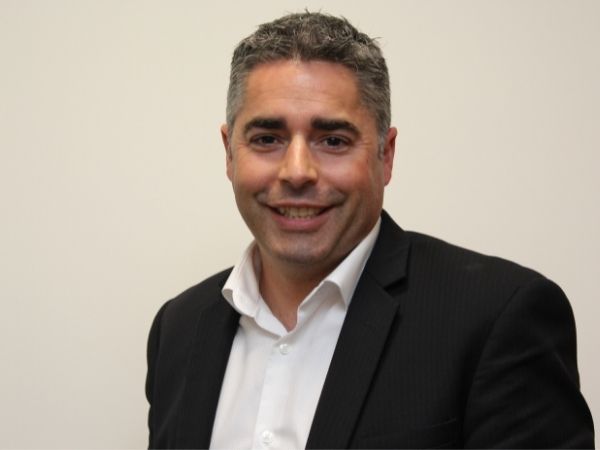
Connon Andrews
“It’s fantastic that Beca has identified this as a key area to focus on going forward,” Andrews says. “It reflects where we are as business, and also as a country. I’m really happy to be playing a key role in turning these conversations about climate change into action.”
Andrews has a degree in earth science and resource and environmental planning and completed his masters in coastal oceanography and marine geology. Specialising in coastal science and infrastructure within engineering consultancies, he’s built a successful career working globally on major infrastructure programmes.
“I’ve been really fortunate to work in a range of different geographies, cultures and climates and it’s been really rewarding.”
He’s been with Beca since 2014, and his recent work has focused on integrating climate change into infrastructure development projects throughout the Pacific. Some recent projects include the Apia port resilience project that was designed to accommodate future climate change through to advising on future sea level risk throughout the Pacific on behalf of the Pacific Resource Infrastructure Facility (PRIF).
“A lot of the work in the Pacific is about connecting communities and trying to stimulate their economy. They are not just isolated infrastructure projects rather projects that that support growth, promote health, equity, environmental and social outcomes. It’s really rewarding to work in that space and be able to see a tangible difference, making someone’s life better.”
His new role is focused on climate change resilience and adaptation, and there are plenty of challenges ahead.
With rising sea levels, changing temperature, increased rainfall and more frequent storms, weather events that were previously considered one-in-100-year events are expected to shift to more like one-in-10-year events.
“Transitioning that change and risk profile to existing and future infrastructure is going to be a major challenge,” Andrew says.
“The other big challenge I see is the speed of change that’s needed. This decade we’re in now is commonly referred to as the decade of change, and this is where we need to act.
“COVID has shown us that we can change and we can do things differently. There are similarities between climate change and COVID.
“One of my concerns is that change is difficult, and we’re only motivated to change when there’s a crisis or when you see something tangible. Climate change you can’t really see, it happens over a long period of time, so people tend not to react.
“A lot the future change particularly around sea level rise and ice shelf response is locked in and irreversible. Our future emissions will further affect the magnitude of the change and importantly the timing. Timing is an important issue when considering how we respond and manage risk, we have high confidence in projected change for the next 30 years, however for the longer term the rate of change is dependent on our emission reduction actions ”.
Andrews will play a key role in helping clients to mitigate climate change and plan for it.
“As well as helping our clients to reduce emissions, we’re also helping them to design and plan infrastructure so that it can be adapted over time to reduce the risk. So that could be through an engineering solution, or through relocation, planning responses or through a range of other options.”
With the Resource Management Act due to be replaced by a new suite of legislation, Andrews is prepared for a time of transition while focusing on short-term and long-term solutions.
He says the three new pieces of legislation – the Natural and Built Environments Act, the Strategic Planning Act, and the Climate Adaptation Act – will provide much-needed guidance for some of the critical conversations, for example around funding, compensation and existing use rights.
“We have to adjust to a new way of thinking to tackle climate change in general. We need to make changes now for the sake of our future generations. So it’s a good time to be giving this work a lot more attention. We need to, not just Beca, but society. I’ve always wanted to do more in this important sector and welcome the opportunity to support our client and communities in tacking this immense challenge.”
Connect with Connon Andrews on LinkedIn
